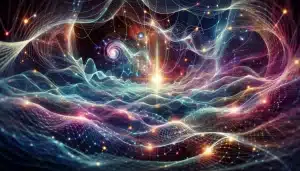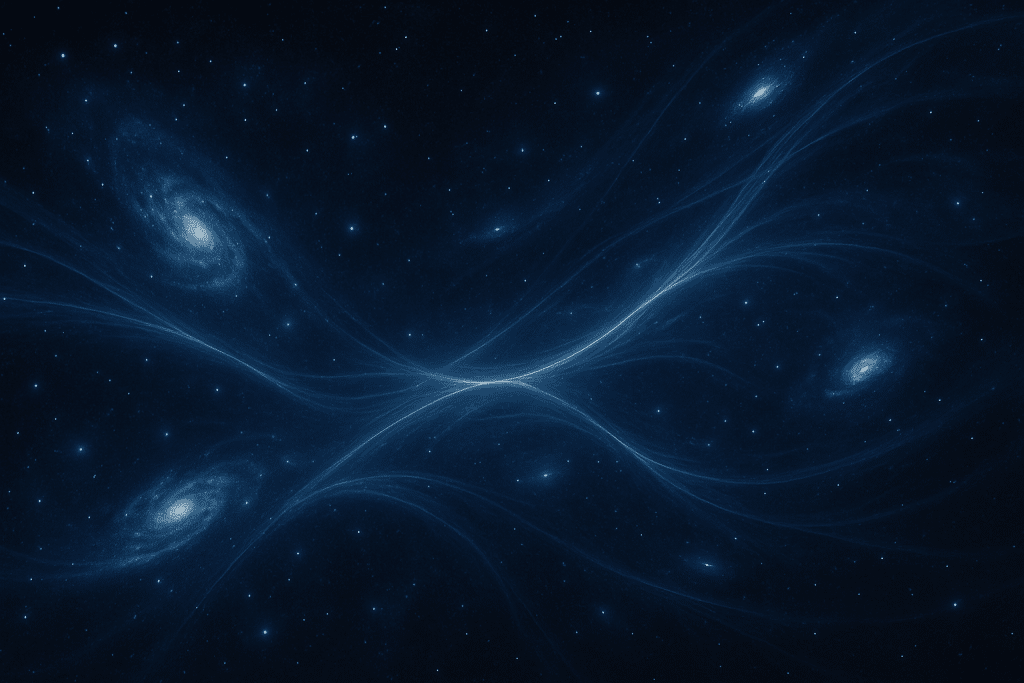Universal Interconnection: How Waves Link All Life and Matter

In the exploration of the cosmos, an idea both ancient and revolutionary emerges: everything in the universe—living beings, inanimate objects, and even thought itself—is connected through waves. This perspective, rooted in both modern physics and timeless philosophies, suggests that electromagnetic, gravitational, and potentially unknown waves form the invisible threads linking all forms of existence.
In this article, we delve into the scientific foundations, philosophical implications, and transformative potential of this universal wave connection.
The Foundation: Universal Waves as the Fabric of Reality
Scientific Origins: Waves at the Heart of Quantum Physics
Quantum physics and relativity have redefined our understanding of reality. At a fundamental level, particles are not isolated objects but dynamic expressions of underlying fields, interacting through waves of probability.
Quantum entanglement demonstrates this vividly: two particles remain connected across vast distances, influencing each other instantly, revealing an intrinsic, wave-based link across the universe.
This insight suggests that waves—not particles alone—could form the true fabric of space, time, and matter, connecting every entity through a continuous, vibrating field.
Ancient Wisdom Meets Modern Science
Long before the age of laboratories and telescopes, ancient traditions like Buddhism, Hinduism, and Taoism described a reality of profound interconnectedness. Philosophers like Spinoza, advocating pantheism, envisioned the universe and the divine as a single, unified entity.
Today, these ancient insights find surprising validation in scientific models of wave-based connections, demonstrating a timeless human intuition: everything is part of one vast, interdependent whole.
Rethinking Individuality and Responsibility Through Interconnection
Redefining the Self
If all beings are interconnected through waves, the traditional idea of individuality becomes more nuanced. Rather than isolated entities, we may be unique expressions within an ever-changing, collective wave field.
This vision invites a deeper understanding of free will—not as absolute independence, but as harmonized participation in a larger cosmic system.
Ethics in a Wave-Connected Universe
Recognizing the deep interconnection between all things carries important ethical consequences. Every action, thought, or emotion sends ripples through the universal field, influencing others and the environment.
This perspective strengthens values such as compassion, empathy, and non-violence, encouraging ethical choices that respect the entire web of life.

Consciousness and Waves: A New Perspective
Could consciousness itself be a manifestation of universal waves? Instead of being confined to individual brains, awareness may emerge naturally from the interactions within the cosmic wave field.
Such a view could expand our definition of consciousness to include not only all living beings but perhaps even large systems, offering a radically inclusive vision of awareness across the cosmos.
Spiritual Insights and Everyday Practice
The concept of interconnected waves mirrors spiritual teachings of non-duality—the idea that separateness is an illusion.
By embracing this vision, daily life gains new meaning: mindfulness, meditation, and compassionate living become ways of attuning ourselves to the rhythms of the universe, fostering a deeper sense of unity with all beings.
The Bee Theory: Waves as Universal Connectors
Among emerging theories, the Bee Theory offers a compelling wave-based model of universal connection. Rather than viewing gravity, energy, and consciousness as separate phenomena, Bee Theory proposes that they are all different expressions of a single, interconnected wave structure permeating space and time
Universal Connection Across All Scales
Micro and Macro Unity
Bee Theory bridges the gap between quantum particles and cosmic structures. The same wave principles that govern subatomic interactions also organize the movements of galaxies. This perspective encourages us to see the universe as a single, resonating whole.
Consciousness Across Systems
If consciousness arises from wave patterns, then levels of awareness could exist across many scales—from individual beings to planets, and perhaps even entire galaxies.
This leads to the possibility of planetary consciousness and galactic consciousness, suggesting that awareness may be an emergent property of complex, resonant systems.
The Ethical and Philosophical Implications of Interconnectedness
A New Ethical Paradigm
In a universe of waves, every action echoes far beyond its point of origin. Recognizing this interconnectedness calls for a broader, more compassionate ethic—one rooted in respect for all beings and for the planet itself.
Sustainability, empathy, and shared responsibility become natural extensions of understanding our place in the cosmic web.
Breaking the Illusion of Separation
Bee Theory invites us to move beyond the illusion of isolation. Individuality becomes a beautiful, unique pattern within a larger tapestry of existence. This awareness fosters personal growth, collective understanding, and a profound sense of belonging.

Toward a Deeper Understanding of Thought and Consciousness
Thoughts as Waves
If everything is connected through waves, our thoughts may not remain confined to our own minds. Each thought could send subtle ripples through the universal field, influencing others in ways we are only beginning to understand.
This idea resonates with experiences of intuition, collective creativity, and cultural synchronicities observed throughout history.
Layers of Consciousness
Different complexities of wave interactions could correspond to different levels of consciousness—ranging from basic awareness in individual beings to planetary or even galactic consciousness.
Ultimately, the entire universe could be seen as a single, evolving consciousness, formed from the interactions of all its parts.
Embracing the Wave-Based Universe
The concept of universal waves unites physics, philosophy, and spirituality into a single vision: that we are all expressions of an interconnected, resonating cosmos.
By living with this awareness, we can foster greater compassion, deeper understanding, and a stronger sense of unity with all life and matter.
Bee Theory stands at the frontier of this vision, offering a model where science and spirituality converge—a model that calls us to recognize our place not as isolated beings, but as integral waves in the endless dance of existence.
